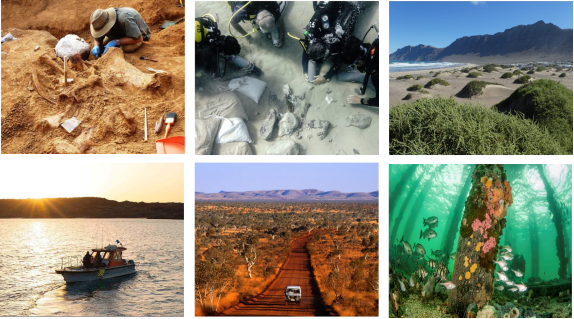
Embarking on a field trip, whether for work, research or study, is a valuable and exciting part of the Flinders University experience. To ensure every journey is safe and successful, it is crucial that all staff, students and volunteers understand and adhere to the University’s field trip procedures.
A field trip is defined as any work, research, study or activity approved by a college/portfolio that is undertaken by staff and/or students off campus at an urban, rural, remote, freshwater or marine location.
- A field trip does not include inter-campus travel, meetings off-site, attendance at conferences, work integrated learning (WIL), visits to an urban area where they are an audience, or work at an Australian university, state and federal government sites (i.e. museums) that use their own safe systems of work.
- Work Health & Safety Obligation: Under WHS legislation, field work locations and associated travel are classified as a workplace. Accordingly, all participants including field trip leaders, staff, students and volunteers must meet their legal WHS obligations.
Key Mandatory Field Trip Procedures
- FlinSafe Approval: All field trips must be lodged and approved through the FlinSafe system before the start date. This critical step ensures all necessary safety controls and documentation are in place.
- Tier-Based Risk Assessment: Risk assessment is a legal obligation and is the responsibility of the Field Trip Leader. Field trips are categorised into two tiers based on risk level:
- Tier 1 (Low-Risk): Applies to activities where there is easy access to emergency services and reliable communication is readily available. The field trip record must be submitted at a minimum of 5 business days prior to the start date.
- Tier 2 (Medium to Higher-Risk): Applies to trips in rural, remote, interstate or overseas locations, or those involving higher-risk activities such as diving/boating, climbing, drones, mining sites or the use of tools. The field trip record must be submitted at a minimum of 10 business days prior to the start date.
- Tier 2 Requirement: These trips require a specific Field Trip Risk Assessment form to be completed, addressing hazards and specifying suitable controls and must be submitted and approved with the FlinSafe field trip process.
- Duration Note: The maximum duration for a field trip in FlinSafe is 12 months.
Hazard Management & Emergency Planning
Field trip leaders and participants must be aware of specific hazards they may face (e.g. bushfires, remote travel and vehicle safety) and ensure risks are assessed and appropriate controls are implemented. Having robust first aid arrangements, developing check-in requirements, emergency contacts and communication plans (which may require satellite phones or SPOT trackers in remote areas) are essential.
Field trip training
Information targeted at specific roles, including Field Trip Leaders, Endorsers, Approvers and Participants is available via Field trip online training.
The field trip process is designed to facilitate a physically and psychosocially healthy, safe and successful experience for everyone involved in field trip activities.
Want More Information?
Please refer to the official Flinders University Work Health and Safety field trip website for details including procedures, field trip safety manual, how to use FlinSafe system and a range of supporting forms and documents.

